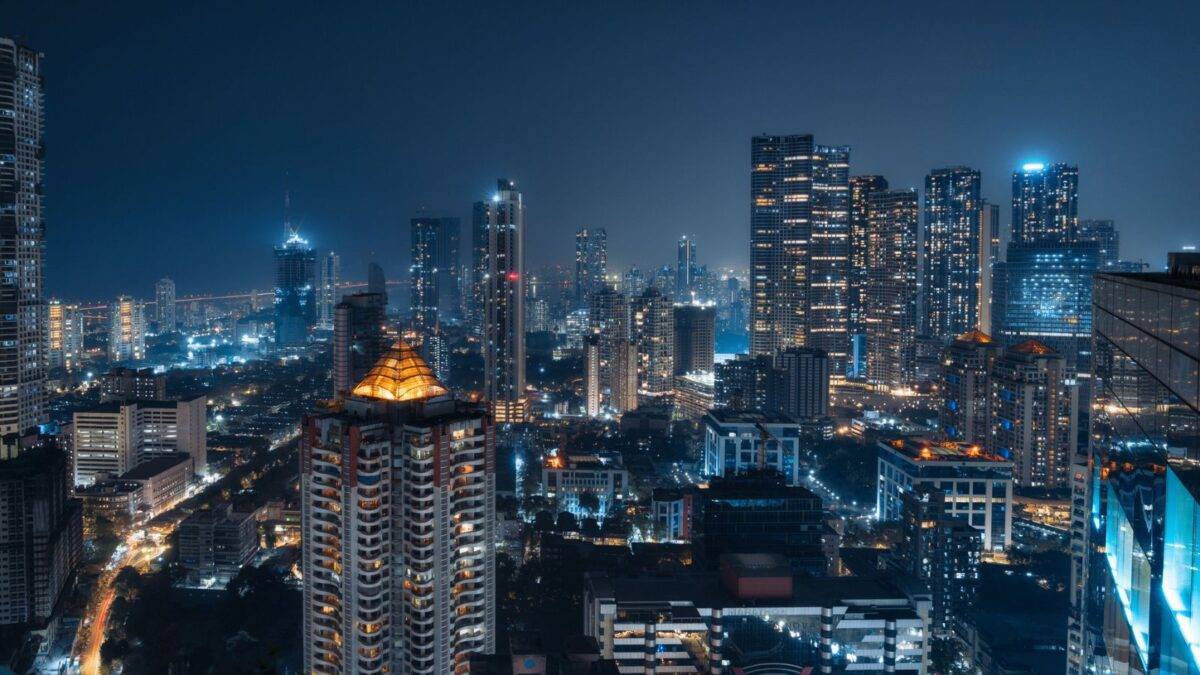Mumbai has achieved a significant milestone by ranking third on the Prime Global Cities Index for Q4 2023, as reported by Knight Frank. This index, which tracks the movement of prime residential prices across 44 cities globally, highlights the substantial growth in luxury housing prices in Mumbai, trailing only Manila and Tokyo. This marks a significant leap for Mumbai, which improved its position from sixth in Q1 2023 to third in Q1 2024.
Global Context: Manila and Tokyo Leading the Charge
Manila topped the index with a staggering 26.2% annual increase in luxury housing prices. This growth can be attributed to strong economic performance, enhanced consumer confidence, increased purchasing power, and substantial infrastructure investments in and around the city. Tokyo secured the second position with a 12.5% YoY growth, jumping 17 places from its previous rank. Key factors for Tokyo's rise include favorable mortgage terms from Japanese banks and a depreciation of the yen, which attracted significant foreign investment into Tokyo's real estate market.
Indian Context: Economic Drivers Behind Mumbai's Real Estate Surge
Mumbai's position as a global real estate hotspot is underpinned by strong economic fundamentals. With an annual GDP growth rate exceeding 8%, the city has maintained a dynamic economic environment that attracts both domestic and international investors. This economic vitality translates into robust demand for residential properties across all segments, from affordable housing to luxury condominiums.
The surge in Mumbai's real estate prices, particularly in the luxury segment, has been remarkable. Properties priced above ₹4 crore have seen a substantial 10% year-on-year growth in early 2024, reflecting affluent buyers' increasing appetite for upscale living spaces. This trend is driven by factors such as rising disposable incomes, urbanization, and Mumbai's status as a hub for corporate headquarters and financial institutions.
Sectoral Analysis: Luxury Housing and Residential Trends
The luxury housing market in Mumbai has been a significant driver of overall real estate growth. High-net-worth individuals (HNIs) and ultra-high-net-worth individuals (UHNIs) continue to invest in premium properties, attracted by Mumbai's cosmopolitan lifestyle, world-class amenities, and high return on investment potential. The city's skyline is dotted with skyscrapers offering panoramic views of the Arabian Sea, catering to the discerning tastes of affluent buyers.
In addition to luxury housing, Mumbai's residential market has witnessed steady growth across various price segments. Affordable housing schemes initiated by the government, coupled with private sector initiatives, have addressed the burgeoning demand from the city's middle-class population. These developments contribute to Mumbai's reputation as a city of opportunities, where housing options cater to diverse socio-economic backgrounds.
Comparative Performance of Other Indian Cities
Delhi also made remarkable strides, rising from 17th position in Q1 2023 to fifth in Q1 2024, with a year-on-year (YoY) growth of 10.5% in prime residential prices. Conversely, Bengaluru saw a slight decline, dropping from 16th to 17th place, despite recording a 4.8% YoY growth in residential prices. This indicates a mixed performance among major Indian cities in the luxury housing market.
Economic Factors and Future Prospects
Mumbai and New Delhi’s surge in house prices is largely driven by robust economic growth, with annual GDP growth rates surpassing 8%. The global trend of strong demand for residential properties has been particularly pronounced in gateway markets of Asia-Pacific and EMEA (Europe, Middle East, and Africa). Shishir Baijal, chairman and managing director at Knight Frank India, suggests that the momentum of sales in these regions is expected to remain stable over the coming quarters due to steady economic conditions.
Challenges and Opportunities
While the rise in luxury housing prices presents opportunities, it also poses challenges. The affordability of housing remains a critical issue, with many middle and lower-income families finding it increasingly difficult to enter the housing market. Additionally, the environmental impact of rapid urbanization and the need for sustainable development practices are pressing concerns that need to be addressed.
Conclusion
Mumbai’s ascent to the third position on the Prime Global Cities Index is a testament to its growing prominence in the global luxury housing market. With robust economic growth and increasing demand for prime residential properties, Mumbai is well-positioned to maintain its upward trajectory. However, addressing the challenges of affordability and sustainable development will be crucial in ensuring long-term growth and stability in the housing market.
Image source- housing.com









.png)